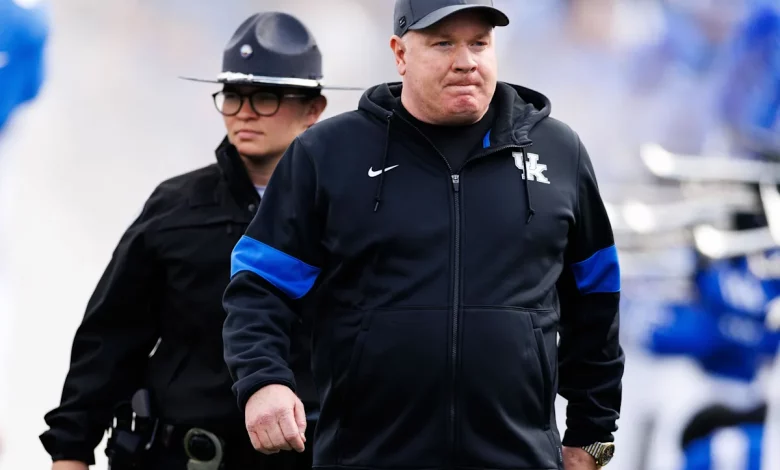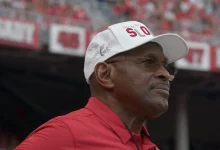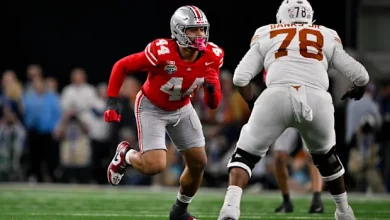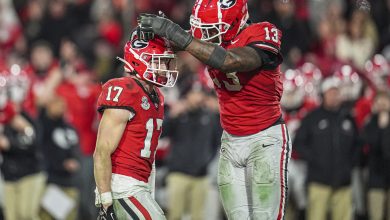Kentucky Wildcats and other SEC programs must confront growing concerns over tampering to preserve fairness and integrity in college sports.

In today’s era of rapid transformation across college athletics, few issues have emerged with greater urgency—or greater controversy—than tampering. As the transfer portal and name, image, and likeness (NIL) rights redefine what it means to be a college athlete, the line between fair recruitment and unethical interference continues to blur. For the Kentucky Wildcats and fellow Southeastern Conference (SEC) programs, the problem of tampering now looms as a threat to the very core of competitive balance, institutional trust, and student-athlete welfare.
As C.L. Brown and others in college sports journalism have noted, addressing tampering is no longer optional—it’s essential. If the SEC wants to maintain its dominance while retaining credibility, proactive steps must be taken. That includes internal policy changes, stronger enforcement mechanisms, and a cultural shift that places integrity on equal footing with winning.
The Rise of Tampering in the Transfer Portal Era
The NCAA’s decision to allow immediate eligibility for first-time transfers—combined with the explosion of NIL deals—has created a perfect storm. Athletes now have unprecedented freedom to explore better opportunities, both on the field and financially. While this autonomy is a long-overdue right for players, it has also introduced new vulnerabilities to abuse.
Tampering, by definition, occurs when coaches or school representatives attempt to influence a student-athlete’s decision to transfer while that player is still enrolled at another institution and not in the NCAA transfer portal. This is explicitly against NCAA rules. Yet as more players switch programs, often with remarkable speed and coordination, the evidence of behind-the-scenes tampering has become increasingly difficult to ignore.
Players have spoken anonymously about receiving “feelers” or backchannel messages from programs encouraging them to transfer. NIL collectives—groups formed to facilitate athlete endorsements—are often cited as informal brokers in these conversations, operating in gray areas of regulation. These dynamics, left unchecked, not only violate NCAA rules but also destabilize team cultures and erode trust among coaches, players, and institutions.
How It Affects the SEC—and Why Kentucky Must Lead
The SEC is arguably the most competitive conference in college sports, and nowhere is that more evident than in football and men’s basketball. With millions of dollars at stake, and national titles regularly coming through the South, programs are under intense pressure to win—and to win now.
That urgency creates an environment ripe for unethical shortcuts. Tampering becomes a tool not only to poach talent but to weaken rivals. In this atmosphere, programs like Kentucky—known for tradition-rich basketball and increasingly competitive football—face added challenges. It becomes harder to build long-term rosters when players can be lured away by NIL promises or the whisper of a bigger spotlight elsewhere.
For Kentucky, which has built both its basketball and football programs on development and loyalty, unchecked tampering undermines everything that head coaches John Calipari and Mark Stoops have tried to establish. The Wildcats cannot afford to let the transfer portal become a revolving door fueled by unethical recruiting practices.
Recent Examples and Fallout
While specific names are often kept under wraps due to legal and compliance concerns, there are numerous anecdotal examples that point to widespread tampering. Coaches across the country—from Lane Kiffin at Ole Miss to Eli Drinkwitz at Missouri—have publicly expressed frustration at losing players to programs they suspect contacted athletes prematurely or offered NIL packages as inducements.
In basketball, where one or two transfers can dramatically alter a program’s outlook, tampering can be especially damaging. The offseason has seen several high-profile players change schools under suspiciously coordinated circumstances, often with NIL deals announced within days—if not hours—of entering the portal.
The lack of transparency in how these deals are negotiated, and when, raises red flags. If a player enters the portal and signs an NIL contract with a new school’s collective within 24 hours, it is difficult to argue that conversations did not occur beforehand.
What the NCAA Has (and Has Not) Done
The NCAA has attempted to curb tampering through official warnings and public statements. In January 2023, the Division I Council passed guidelines reiterating that NIL deals must not be used as recruiting inducements and that tampering remains a serious violation.
However, enforcement has lagged behind policy. The NCAA lacks the investigative resources and legal authority to monitor every interaction, especially those conducted through private conversations, agents, or third-party collectives. The decentralized nature of NIL collectives further complicates matters, as many operate independently of athletic departments.
Without meaningful consequences for violators, the current system incentivizes risk-taking. Programs see the potential rewards of acquiring top-tier talent far outweighing the slim chance of punishment. In this environment, tampering is not just a problem—it’s a competitive strategy.
The Role of SEC Leadership and Institutional Accountability
Given the NCAA’s enforcement limitations, the burden now falls on conferences and individual schools to take ownership of the issue. SEC Commissioner Greg Sankey has acknowledged the growing concern around tampering but has yet to implement a comprehensive response.
Kentucky, along with its SEC peers, must step forward and advocate for reform from within. That means:
- Supporting stronger conference-level rules that define tampering clearly and establish investigatory processes.
- Creating internal policies that hold coaches and staff accountable for ethical recruiting practices.
- Establishing clearer boundaries between athletic departments and NIL collectives to reduce the risk of improper influence.
It also requires candid conversations among coaches. SEC programs need to rebuild a culture of respect and mutual trust. Competing fiercely on the field or court should not come at the cost of ethics off of it.
Building a Sustainable NIL Model That Prevents Tampering
The most effective long-term solution to tampering lies in reforming how NIL is administered. While NIL rights are here to stay—and rightly so—they must be decoupled from recruiting incentives.
Kentucky has already made strides in building a legitimate NIL infrastructure through partnerships with alumni and businesses. These programs prioritize educational opportunities, community engagement, and brand-building over quick cash grabs.
To ensure sustainability and compliance, schools like Kentucky can:
- Establish NIL advisory boards that include legal experts and former athletes to review deals and ensure fairness.
- Develop athlete education programs on navigating NIL offers and understanding tampering risks.
- Collaborate with national working groups exploring a uniform NIL registry or clearinghouse to bring transparency to the process.
By investing in robust, ethical NIL programs, Kentucky can both support its athletes and protect its competitive foundation.
The Student-Athlete Perspective
Lost in many tampering discussions is the voice of the athlete. While it’s true that some may willingly engage in transfer discussions outside of proper channels, most athletes are focused on development, relationships, and finding the right environment to succeed.
Tampering undermines these values. It can pressure athletes into making rushed decisions, often based on misleading promises or incomplete information. It also breeds mistrust between players and coaches—especially when athletes begin to feel like commodities rather than individuals.
Kentucky has the opportunity to be a national leader in centering the student-athlete voice in these conversations. By prioritizing transparency and athlete well-being, the program can build deeper loyalty and become a destination where players know they’ll be supported without backdoor agendas.
The Need for Cultural Change
Ultimately, tampering is not just a rules problem—it’s a culture problem. As long as success is measured solely in wins, draft picks, and revenue, the pressure to bend or break rules will persist.
Programs like Kentucky must lead a cultural shift that values integrity and long-term development as much as immediate success. That means hiring coaches and administrators who understand the importance of ethics. It means praising character as much as championship banners. And it means modeling behavior for high school recruits and transfer prospects that shows success doesn’t have to come at the cost of principles.
Time to Take a Stand
The tampering issue in college athletics isn’t going away—it’s growing. And unless bold steps are taken now, the values that underpin college sports could erode beyond repair. For the Kentucky Wildcats and other SEC programs, this is a defining moment.
It’s time to confront tampering head-on, not just with words but with action. That means advocating for reform, enforcing accountability, protecting athletes, and building a culture where winning and integrity are not mutually exclusive.
The SEC has long been a leader in college sports. Now it must lead in restoring trust and fairness. Kentucky, with its history, platform, and values, has the opportunity to be at the forefront of that movement.
Because at the end of the day, how you win matters just as much as winning itself.









